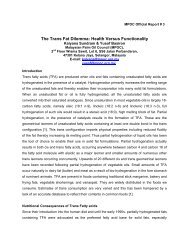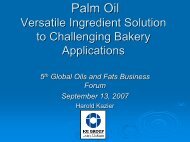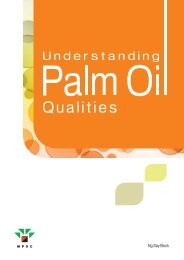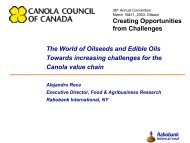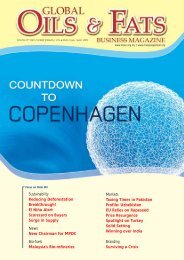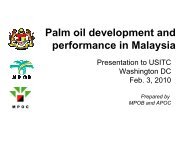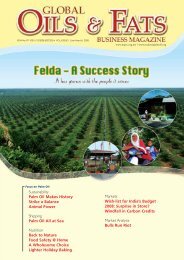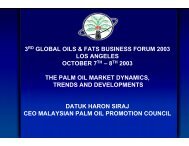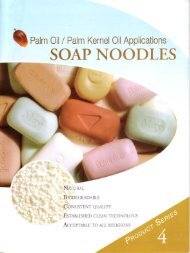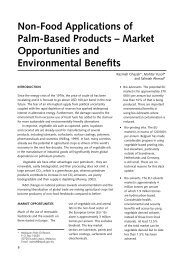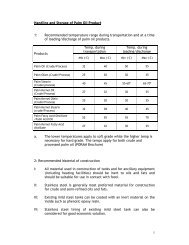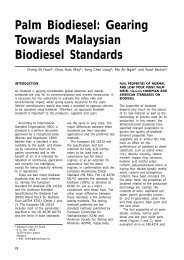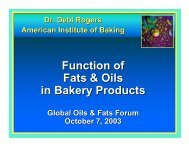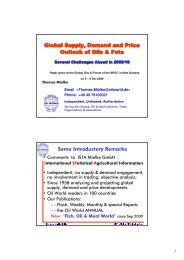Create successful ePaper yourself
Turn your PDF publications into a flip-book with our unique Google optimized e-Paper software.
Environment<br />
Japan wants carbon credits from Malaysia to meet climate-change commitments<br />
Malaysian firms looking to sell<br />
carbon emission rights to<br />
Japanese counterparts,<br />
including Japan Carbon Financing Ltd<br />
(JCF), now have access to a finance<br />
package offered by RHB Bank Bhd.<br />
This will extend loans or guarantees<br />
backed by the Japan Bank for<br />
International Co-operation (JBIC)<br />
which, together with JFC, has been<br />
sourcing carbon credits in the<br />
international market.<br />
Under the 1997 Kyoto Protocol, Japan's<br />
greenhouse gas emissions must drop to<br />
6% below its 1990 level. It will have to<br />
reduce emissions by 14% currently to<br />
achieve this target, with purchase of<br />
carbon credits being one of the<br />
mechanisms identified.<br />
JCF president Hiromu Tanaka, JBIC<br />
senior executive director Fumio Hoshi<br />
and RHB chairperson Datuk Azlan<br />
Zainol signed a memorandum of<br />
understanding on July 27.<br />
International Trade and Industry Minister<br />
Dato’ Seri Paduka Rafidah Aziz witnessed<br />
the ceremony in Kuala Lumpur. She said<br />
companies using biomass as part of<br />
renewable energy initiatives would qualify<br />
for pioneer status or investment tax<br />
allowance.<br />
The partnership will also promote Clean<br />
Development Mechanism (CDM)<br />
projects. Ten potential projects have been<br />
identified, five of which have received<br />
initial government approval. The project<br />
value ranges between RM30 million and<br />
RM450 million.<br />
Malaysia signed the Kyoto Protocol in<br />
March 1999. In August 2003, the<br />
National Committee on CDM approved<br />
project criteria. The focus is on utilising<br />
palm oil effluents including biomass and<br />
solid waste in urban areas, as well as<br />
renewable energy sources.<br />
About 3,000 companies have potential<br />
for CDM projects, mainly in the biodiesel,<br />
steel and waste management<br />
industries. RHB expects to secure 30-40<br />
clients in the next two years, which would<br />
reinforce Malaysia’s position as a steady<br />
source of carbon credits.<br />
JBIC, wholly owned by the Japanese<br />
government, is the world’s largest<br />
government financial arm. JCF was set up<br />
in November 2004 to purchase carbon<br />
credits until 2012, with a fund size of<br />
US$140 million and equity participation<br />
from 31 corporations.<br />
The World Bank put carbon credit trade as<br />
worth US$550 million in 2004; US$2.7<br />
billion in 2005; and US$900 million in the<br />
first quarter of 2006. Japan is the biggest<br />
buyer at some 38% of units from January<br />
2005 to March this year. Britain was next<br />
with 15% and Italy followed with 11%.<br />
This report was based on information from the JBIC, JCF and RHB websites and Press reports.<br />
GLOBAL OILS & FATS BUSINESS MAGAZINE •VOL.3 ISSUE 3, 2006 17



